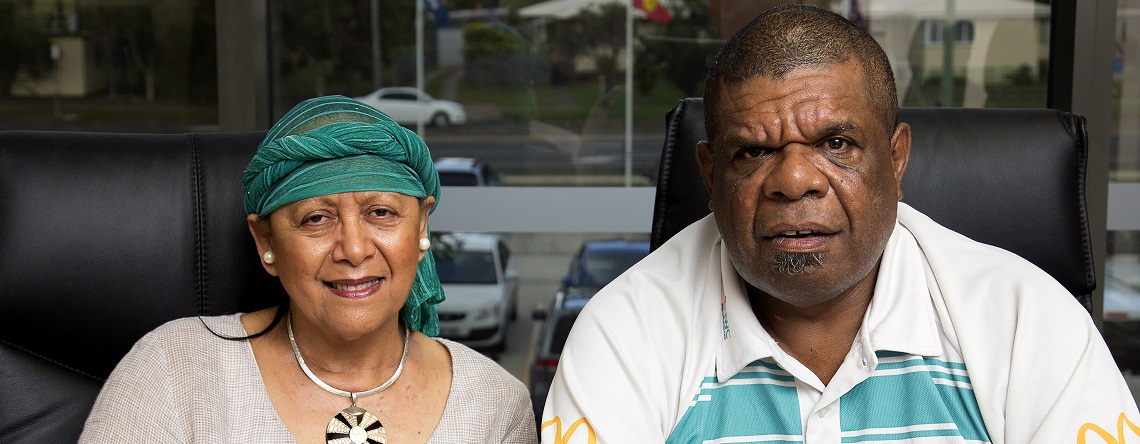
The Indigenous Wellbeing Centre (IWC) is an Aboriginal-community controlled charitable and non-government organisation delivering health and wellbeing services that empower vulnerable, at-risk and disadvantaged Indigenous people.
Established in 2006, it has more than 12,500 clients and delivers 92,000 episodes of care a year. 93 per cent of First Nation peoples in the Wide Bay/Burnett region of Queensland use its services.
IWCs great work was recognised In 2016 when it was named National Aboriginal Medical Service of the Year by the Australian General Practice Accreditation Limited (AGPAL) / Quality Innovation Performance (QIP).
Cheri Yavu-Kama-Harathunian is an IWC Director and Aboriginal Elder.
“IWC developed, in consultation with Traditional Owners and Elders, a unique, holistic model of care, with every service culturally responsive, taking a whole-of-person approach,” Cheri said.
“We listened to the Cultural Philosophical Ethos of our people, and that underpins how we operate.”
IWC services include basic health care provided by GPs and registered nurses and specialist services to improve dietary, dental, eye, heart and child health. Its holistic approach means that it also provides counselling services, Aboriginal chaplaincy and healing circle work.
IWC Director Stirling Eggmolesse said IWC’s work throughout the region breaks down societal barriers as it uses reconciliation principles in service delivery to clients.
“IWC is proving that Indigenous peoples will access mainstream Primary Health Care services if they are delivered appropriately, in a spirit of harmony and community,” Stirling said.
“Since the IWC started Primary Health Care operations in 2007, our work has increased the rate of Indigenous people in the Wide Bay attending Primary Health Care each year from 43 per cent to 84 per cent. This compares with 54 per cent nationally.”
Both directors say IWC’s Transformational Management Model developed by the Chaplain and CEO is unique and unlike other Closing the Gap initiatives.
“IWC bases its services within an Aboriginal Terms of Reference Framework. This means our services’ focus is not just about the client’s health need,” Stirling said.
“Instead, we focus on how our clients can see strength in their own capacity to heal. In partnership with IWC, clients take responsibility to meet their health and other needs for their highest good.”
IWC is headed by an Aboriginal Board and guided by an Advisory Council comprising Traditional Owners and Elders. It is the largest employer of Indigenous Australians in the Wide Bay / Burnett region as around 50 per cent of its 96-strong team are First Nation peoples.
